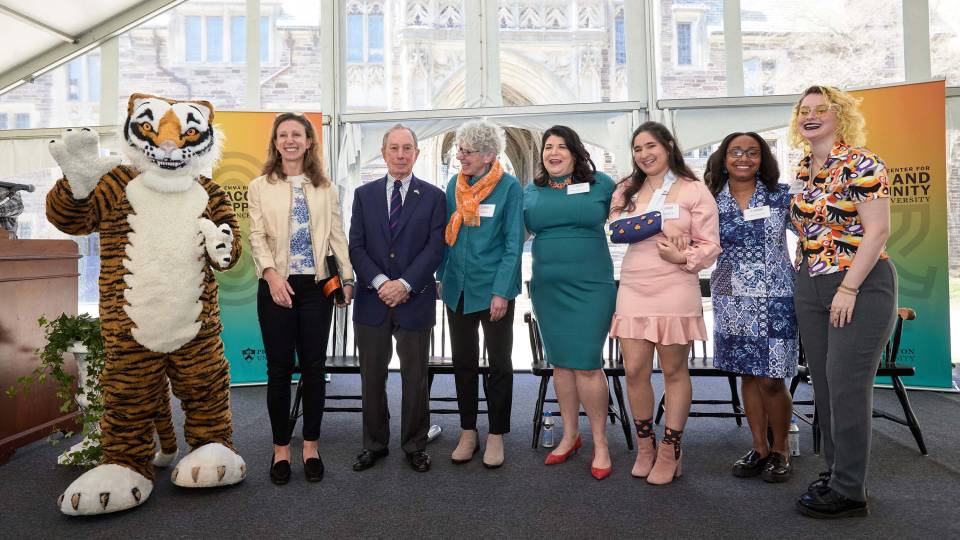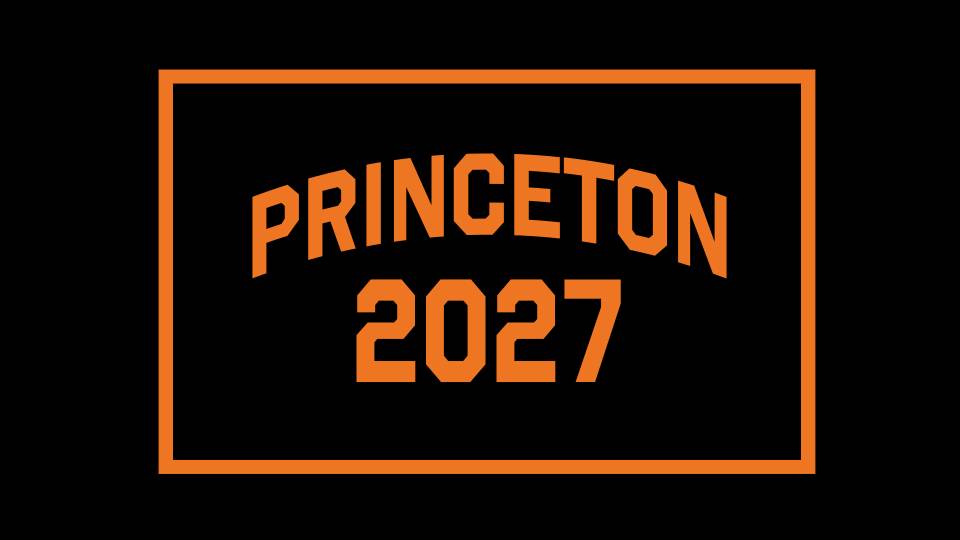Princeton has launched two new initiatives that aim to further increase the socioeconomic diversity of its student body and the range of students at Princeton who major in fields related to science and technology.
The two initiatives fulfill commitments that were made this past January by President Christopher L. Eisgruber when he participated in a White House summit that sought to increase college opportunities for low-income and disadvantaged students nationwide. The University also has expanded its efforts to identify and recruit students from low-income and disadvantaged backgrounds.
"Increasing the number of students at Princeton from lower socioeconomic backgrounds, and providing them with the resources they need to be successful, are high priorities for us," Eisgruber said. "I am grateful for the support of alumni who have provided funding for these initiatives and to the members of the faculty and staff who are helping to design and carry out these programs."
One of the University's new initiatives is a significant expansion of its partnership with Leadership Enterprise for a Diverse America (LEDA), a national program dedicated to developing the academic and leadership potential of talented high school students from socioeconomically disadvantaged backgrounds.
Since 2005, LEDA has hosted the Aspects of Leadership Summer Institute on the Princeton campus. The seven-week summer program provides leadership development, writing instruction, standardized test preparation, college guidance and a supervised version of residential life. The curriculum prepares students to be exemplary campus and community leaders and develops their critical-thinking skills. The residential aspect of the program reinforces the academic experience by building a sense of community among LEDA Scholars.
The University's increased support will allow LEDA to expand participation from 60 to 100 students starting this summer, boosting the opportunity for more students to benefit from this intense intellectual experience and prepare for positions in leadership in the future. Princeton currently enrolls a higher number of LEDA Scholars than any other institution. Princeton's former president, Shirley M. Tilghman, serves on LEDA's board of trustees.
"With Princeton's vital support, LEDA will be able to support more of our nation's most talented students in gaining admission to and succeeding at the higher education institutions that not only match their academic capabilities, but provide crucial access to an excellent education and to leadership in every field," said Beth Breger, LEDA's executive director.
The other new initiative is the development of a new module of the University's Freshman Scholars Institute (FSI) for students interested in science, technology, engineering or math. The new module is being made possible by a donation from Class of 1988 graduate Bob Peck. For Peck, the son of a butcher from Texas, coming to Princeton meant working hard to learn how to thrive at a competitive university. From his own experience, the history major, who studied pre-med and became a Rhodes Scholar, is interested in college access and in supporting students as they make the transition to college.
The 20-year-old FSI program helps admitted Princeton students from low-income families and less advantaged backgrounds to make the transition to the rigor of a Princeton education through a seven-week summer program held on campus. In recent years, FSI students traditionally have taken a humanities survey course and a quantitative reasoning course. The Bob Peck '88 Family Fund for the Freshman Scholars Institute will create two new tracks in life sciences and engineering, featuring laboratory-based work, with the goal of reducing attrition among students who have expressed an interest in those fields.
This initiative also will establish introductory workshops during the academic year for students taking freshman chemistry, as well as a summer research program to enable FSI alumni to work in the lab of a faculty member, thereby allowing them to take part in original scientific research. The new opportunities will be phased in as of summer 2015.
Princeton's freshman Class of 2018 has a record 290 students from low-income backgrounds, making up 22 percent of the class; approximately 12 percent of the Class of 2018 are first-generation college students; and 18 percent of freshmen are federal Pell Grant recipients, compared with 14.5 percent of freshmen last year.
To increase the representation of students from lower-income families, the Office of Admission has been expanding its contacts with community-based organizations (CBOs) around the country that serve high school students from low-income backgrounds. Admission officers this academic year are arranging visits to more CBOs, as well as electronic information sessions that target students served by CBOs.
Admission officers also have expanded their travel to recruit more low-income students from rural and urban communities across the country. Office of Financial Aid staff have begun attending some admission information sessions nationwide to answer questions from prospective students and their families about Princeton's generous financial aid program.
The Admission office also has increased its communications outreach to high-achieving, low-income students and their families. This effort includes brochures, letters and online information that highlight the University's financial aid program, diverse community, high graduation rate and academic support for students. Some of these materials will be made available in Spanish. The office plans to launch later this fall a mobile version of the Admission website, which will make the website easier to use for students who do not have laptop or desktop computers. An Admission website page with information specifically for low-income and diverse students also has been launched.
Princeton waives application fees for low-income students and last year the University hired an admission officer with particular responsibility to provide outreach and support to these students during the admission process.
In 2001, Princeton was the first university to replace loans in its financial aid package with grants that do not have to be repaid, and today 60 percent of undergraduates are on financial aid. During the past decade the University also expanded its undergraduate student body to educate more students, including more low-income students. Princeton has a number of programs that support lower-income students in addition to LEDA and FSI, such as the Princeton University Preparatory Program (PUPP), which readies disadvantaged New Jersey students for admission to selective colleges, and the Graduate School's Princeton Summer Undergraduate Research Experience (PSURE).



